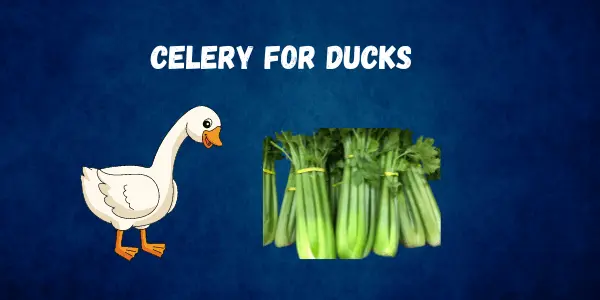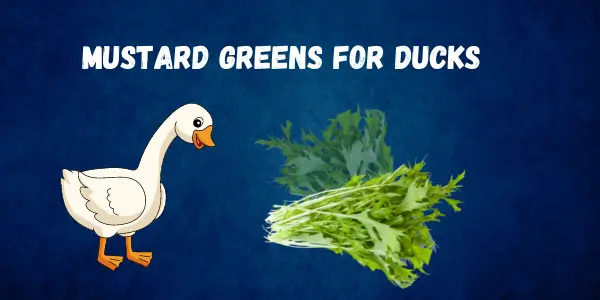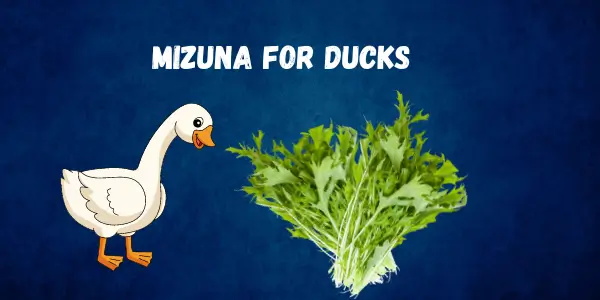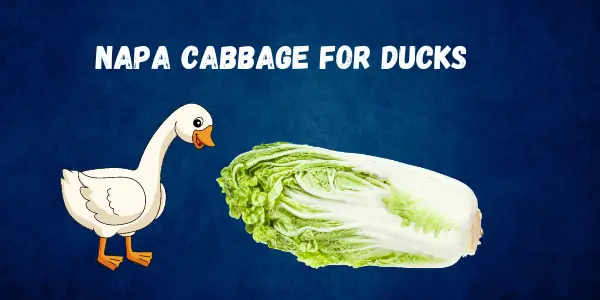Can Ducks Eat Radishes? Everything You Need to Know
Published: 17 Sep 2024
Ducks can eat radishes, but they should be given in moderation as part of a varied diet. Radishes are not a natural part of a duck’s diet, but they can provide certain vitamins and minerals.
Ducks generally prefer softer foods, so chopping radishes into small pieces makes them easier to eat. While radishes are safe, they should not replace primary duck feed, grains, or leafy greens.
The Nutritional Value of Radishes for Ducks
Radishes are low in calories and contain important nutrients for ducks. They are a good source of vitamin C, fiber, and antioxidants. However, they are not a significant source of protein, which is essential for ducks’ growth and egg production.

Key nutrients in radishes:
- Vitamin C: Supports the immune system.
- Fiber: Helps digestion but should be given in small amounts.
- Potassium: Supports muscle function.
- Antioxidants: May provide minor health benefits.
Radish leaves (greens) contain oxalic acid, which can affect calcium absorption. Ducks should eat them in limited amounts to avoid potential health issues.
Can Ducks Safely Eat Radishes?
Yes, ducks can safely eat radishes when fed in small quantities. However, they may not find radishes very appealing due to their peppery taste. Offering radishes occasionally as a treat is safe, but they should not replace a nutritionally balanced diet.
Are Radishes Toxic to Ducks?
No, radishes are not toxic to ducks. However, feeding them in excess may cause digestive discomfort due to their high fiber content. Ducks should have access to fresh water when eating radishes to aid digestion.
Can Ducks Eat Radish Leaves and Greens?
Yes, ducks can eat radish leaves and greens, but only in small amounts. Radish leaves contain oxalic acid, which can interfere with calcium absorption and potentially affect eggshell quality. It’s best to offer radish greens occasionally along with other safe leafy vegetables.
Can Ducks Eat Radish Sprouts?
Ducks can eat radish sprouts, but they should be introduced carefully. Sprouts are rich in nutrients and can be beneficial in small quantities. However, they can have a strong flavor that ducks may not enjoy.
Can Ducks Eat Daikon Radish?
Daikon radish, a milder and larger variety, is also safe for ducks. It has a less spicy taste than regular radishes and may be easier for ducks to eat. Like other radishes, it should be chopped into small pieces and offered as an occasional treat.
How to Feed Radishes to Ducks the Right Way
Feeding radishes to ducks requires proper preparation to ensure they are safe and easy to eat. Ducks do not naturally consume hard vegetables, so radishes should be cut into small, manageable pieces. Additionally, radishes should always be fresh and free from pesticides or harmful chemicals.
While radishes can be a part of a duck’s diet, they should not be a primary food source. Ducks thrive on a balanced diet that includes grains, seeds, leafy greens, and protein sources like insects or small fish.
Should Radishes Be Cooked or Raw for Ducks?
Ducks can eat both raw and cooked radishes, but raw radishes retain more nutrients. Cooking radishes softens their texture, making them easier for ducks to chew and digest. However, boiled or steamed radishes should be plain, without any salt, oil, or seasonings.
Raw radishes provide natural fiber and vitamins, but their firm texture may be challenging for some ducks. Chopping raw radishes into small pieces makes them easier to eat. If a duck struggles with raw radishes, lightly steaming them can help.
How Much Radish Can Ducks Eat?
Radishes should be fed in moderation. A small portion, such as a few bite-sized pieces per duck, is enough. Overfeeding radishes may cause digestive issues due to their high fiber content.
A good feeding guideline:
- Small amounts (a few pieces) once or twice a week
- Avoid feeding radishes daily or in large quantities
- Always provide access to fresh water when feeding radishes
Radishes should be part of a diverse diet that includes grains, leafy greens, fruits, and protein sources. Ducks require a well-balanced diet for proper growth, egg production, and overall health.
Can Ducks Eat Radishes in the Winter?
Yes, ducks can eat radishes in the winter. Radishes are a hardy vegetable and can be stored for long periods, making them a suitable winter treat. However, ducks need more energy-dense foods during colder months to maintain body heat.
Winter feeding tips:
- Pair radishes with corn or grains for extra energy
- Offer warm (not hot) cooked radishes to make them more palatable
- Avoid feeding cold or frozen radishes directly from storage
Ducks may prefer softer foods in winter, so steaming radishes slightly can make them easier to eat.
Mixing Radishes with Other Vegetables Like Carrots and Peppers
Radishes can be combined with other vegetables to create a more balanced treat for ducks. Since radishes are not highly nutritious, mixing them with carrots, bell peppers, or leafy greens can improve their overall dietary value.
Best vegetables to mix with radishes:
- Carrots: Rich in vitamin A, good for eye health
- Bell Peppers: Contain vitamin C and antioxidants
- Lettuce or Kale: Provide fiber and essential minerals
Chop all vegetables into small pieces to prevent choking. Avoid feeding ducks nightshade vegetables like green tomatoes or raw potatoes, which can be harmful.
Are Radishes Beneficial for Ducks’ Health?
| Are Radishes Beneficial for Ducks’ Health? |
|---|
|
Radishes can be a healthy addition to a duck’s diet when fed in moderation. They provide essential vitamins, minerals, and fiber, supporting overall health. However, radishes are low in protein and energy, meaning they should be offered as a supplement rather than a staple food. While radishes contain beneficial nutrients, their high fiber content can be difficult for ducks to digest in large amounts. Feeding small portions alongside other nutritious foods ensures ducks get a well-balanced diet. Nutrients Found in RadishesRadishes offer several nutrients that can benefit ducks, including:
Although radishes contain these nutrients, they are not as nutrient-dense as other vegetables like kale, lettuce, or carrots. Ducks need a variety of foods to meet their dietary requirements. |
ducks too many radishes can cause digestive discomfort. Radishes are high in fiber, which, in excess, can lead to bloating, gas, or loose stools in ducks. Ducks have delicate digestive systems, and sudden changes in diet can disrupt gut balance.
Signs of digestive issues from excess radishes include:
- Soft or watery droppings
- Reduced appetite
- Decreased activity levels
To prevent digestive problems, feed radishes in small quantities and mix them with other duck-friendly foods like grains, leafy greens, and seeds. Always provide plenty of fresh water to aid digestion.
Can Radishes Affect Egg Production in Ducks?
Radishes themselves do not directly impact egg production, but excessive consumption of radish greens could affect calcium absorption. Radish leaves contain oxalic acid, which binds to calcium and may reduce its availability for eggshell formation.
For laying ducks, a calcium-rich diet is essential. If feeding radish greens, they should be given in moderation alongside calcium-rich foods like:
- Crushed oyster shells
- Leafy greens (excluding high-oxalate varieties)
- Duck feed formulated for laying hens
If a duck’s diet lacks proper nutrients, egg production may decline, and eggshells may become thin or fragile. Ensuring a balanced diet with adequate calcium and protein helps maintain consistent egg production and strong shells.
Can Chickens and Ducks Eat Radishes Together?
Yes, both chickens and ducks can eat radishes together. Radishes are safe for both birds when fed in moderation. Since ducks and chickens have different eating habits—ducks prefer softer foods while chickens peck at harder textures—it’s best to chop radishes into small pieces to make them easier to consume.
Chickens are more likely to enjoy radish roots, while ducks may prefer radish leaves and softer parts. If feeding radishes to a mixed flock, scatter them on the ground or mix them with other vegetables to encourage natural foraging.
Can Chickens and Ducks Eat Radish Leaves?
Yes, chickens and ducks can eat radish leaves, but in limited amounts. Radish leaves contain oxalic acid, which can interfere with calcium absorption, especially in laying birds. While a small portion of radish leaves is safe, they should not be a primary food source for either ducks or chickens.
For a balanced diet, it’s best to mix radish leaves with other leafy greens such as lettuce, kale, or spinach (in moderation). Providing additional calcium sources, such as crushed oyster shells, helps offset any potential calcium loss from oxalates.
Can Chickens and Ducks Eat Radish Greens?
Yes, radish greens are safe for both chickens and ducks, but moderation is key. These greens contain valuable nutrients, including calcium and vitamin C, but their oxalic acid content means they should not be overfed.
For a mixed flock diet, consider offering radish greens as part of a vegetable mix with carrots, bell peppers, and leafy greens. This helps ensure a varied diet while minimizing any negative effects from oxalates.
Best Practices for Adding Radishes to a Duck’s Diet To safely include radishes in a duck’s diet, follow these best practices:
- Feed in Small Quantities: Radishes should be a treat, not a primary food. A few small pieces once or twice a week is enough.
- Chop or Cook for Easier Eating: Ducks struggle with hard foods, so chop raw radishes into small pieces or steam them for easier digestion.
- Mix with Other Vegetables: Combine radishes with duck-friendly foods like carrots, bell peppers, and leafy greens.
- Limit Radish Greens: Due to oxalic acid, radish greens should be fed occasionally, not daily.
- Ensure Fresh Water is Available: Radishes contain fiber, which can be tough on digestion without adequate hydration.
- Avoid Moldy or Pesticide-Treated Radishes: Always wash radishes thoroughly and discard any that show signs of spoilage.
Final Thoughts on Feeding Radishes to Ducks
Radishes are a safe and nutritious treat for ducks when fed properly. They offer vitamins, fiber, and antioxidants but should never replace a balanced diet. Ducks thrive on a diet that includes grains, leafy greens, fruits, and protein sources like insects or small fish.

- Be Respectful
- Stay Relevant
- Stay Positive
- True Feedback
- Encourage Discussion
- Avoid Spamming
- No Fake News
- Don't Copy-Paste
- No Personal Attacks

- Be Respectful
- Stay Relevant
- Stay Positive
- True Feedback
- Encourage Discussion
- Avoid Spamming
- No Fake News
- Don't Copy-Paste
- No Personal Attacks





